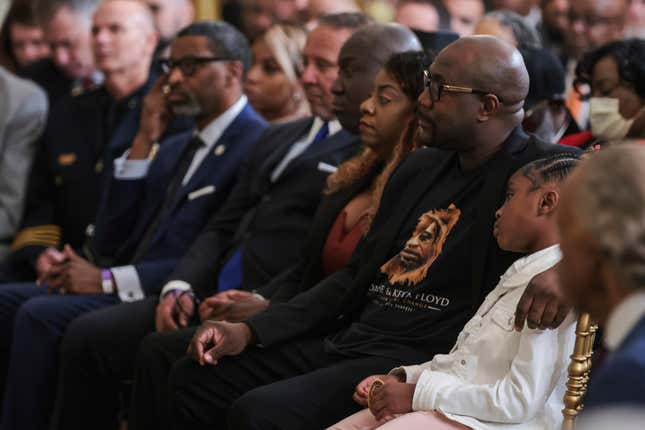
Last week, President Joe Biden signed an executive order to address racism in policing, placing federal officers under new restrictions and protocols, per various reports. However, there is an ongoing discussion on whether the order does enough to address police brutality. Per The Associated Press, activists have hope that it will be a significant step forward.
The draft of the order leaked before it was completed, nearly jeopardizing its ability to be completed. Per AP’s report, it sparked controversy over the segment addressing systemic racism and police from around the nation felt the order was being too harsh on them. Though, ignoring racism in policing would defeat the purpose of pushing for “just” policing, given the process of drafting the order involved the families of Black police brutality victims.
In the end, police, civil rights activists and the families came together in support.
“We have to keep the dialogue going. And I think this helps create the sense that we can talk, and if we do talk, we’ll find some common ground,” said Marc Morial, president of the National Urban League.
Though, others saw the order as more fluff to pacify Black people.
More from AP News:
Not everyone was mollified. The Movement for Black Lives issued a statement calling Biden’s executive order “a poor excuse for the transformation of public safety that he promised.” But Derrick Johnson, president of the NAACP, argued that the order represented progress.
“If we refuse to sit at the table, or allow for the political climate to overshadow public policy opportunities, we all suffer as a result,” he said.
Another concern came from the order’s limit to federal agencies when nowadays, local authorities have been the perpetrators of police brutality against Black folks.
“Simply having these words on paper is not going to save lives,” said Udi Ofer, deputy national political director of the American Civil Liberties Union via AP News.
One point many can agree on is that “real” change in police reform won’t occur without legislation. Biden, in particular, encouraged Congress to make their move. The executive order is a good start but “reinforcing the partnership between law enforcement and communities” will not come with the stroke of a pen.

